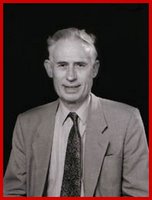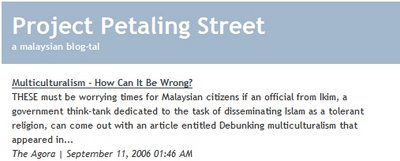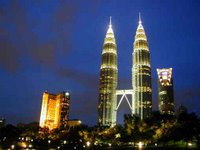Yancey, Philip. 2006. Prayer: Does it make any Difference? London: Hodder and Stoughton.
Philip Yancey, author of best selling
Disappointment with God and
Soul Survivor, is a popular author because he puts in words, what many Christians are feeling but are afraid to articulate. He deals with controversial topics of living a Christian life with brutal honesty. Hence a book on prayer is most welcome. Prayer is the most talked about subject in Christian life yet least practiced. Yancey stated that to him, prayer is the area where two themes of struggle in Christian life meet: “Why God doesn’t act the way we want God to and why I don’t act the way God wants me to.”
In Part 1, Yancey developed the theme of who God is and who we are in relationship to Him. He also highlighted the fact that God wants to keep company with us. It is in this context that, Yancey developed his argument why we should pray. To him, prayer is a partnership with God which he developed in Part 2. God wants to partner with his creatures in his great redemption plan of the fallen present creation. Prayer then is a form of negotiation. Skillfully skirting the theological issue of whether an unchanging God can change His mind, Yancey explored the numerous passages in the Bible that God did changed His mind. He concluded that the underlying reason that God does change His mind because of love. “For God so loved the world…”
(Dave: Some helpful discussions on such texts
here and
here)
In Part 3, Yancey explored the ‘language of prayer.’ Basically, this section is a ‘how to pray’ section. However I am glad he explored the silence of God in his chapter ‘the sound of silence’. For some reasons, most churches do not teach the fact that in a life of prayer, there are times when God does not seem to be present. Spiritual writer like John of the Cross talked about a dark night of the soul- an experience where God seems to be absent. One reason why this is not commonly taught may be that many Christians may not be able to accept the fact that God will voluntarily withdraw the awareness of His presence from us. However as many spiritual writers have attested, these dark nights are necessary for our spiritual growth. Another reason may be that almost all Christians are struggling with prayer (or time to pray). A God who seems absent may not fit into their theological framework.
Part 4 is the climax of the whole book. I was excited to discover what Yancey would say about two important issues for us who are struggling with prayers- unanswered prayers and prayers and physical healing.
Regarding unanswered prayer, Yancey wrote, “Some, but not all, unanswered prayers trace back to a fault in the one who prayers…to God’s mystifying respect for human freedom and refusal to coerce…to dark powers contending against God’s rule…to a planet marred with disease, violence and the potential for tragic accident.” What about the unanswered prayers not due to these causes mentioned? After 15 pages, Yancey concludes, “In the end, unanswered prayer brings me face to face with the mystery that silenced Paul: the profound difference between my perspective and God’s”. It is a mystery but that does not help those of us who are struggling with unanswered prayers.

Yancey seems to have struggled much as he wrote about prayer and physical healing. Earlier in the book he has noted the tremendous growth of the church in Nepal. “The first Nepalese became a Christian in 1950. Now the Church numbers more than half a million, and Nepalese church leaders estimate that 80 per cent of converts have resulted from physical healings…European and American doctors who work there as missionaries, and they admit they have no scientific explanation…David Aikman’s book
Jesus in Beijing reports a similar pattern of apparent miracles in China.”
Yet, in his chapter on prayer and physical healing, he wrote, “Nevertheless, I do believe that what many people think of when you say the word ‘divine healing’-supernatural interventions in the law of nature governing our bodies-are extremely rare. They are miracles, not ordinaries.”
This is a brave and honest statement especially in the face of certain groups of Christians who claims that God performs healing on demand (just remind Him of His promises, that’s all). Earlier in the chapter, Yancey extracted an article which he co-authored with Dr. Paul Brand for Christianity Today. Dr. Paul Brand is well recognized as an authority on orthopedic surgery for leprosy patients and a well respected Christian.
In the article, Dr Brand remarked, “From my own experience as a physician I must truthfully admit that, among the thousands of patients I have treated, I have never observed an unequivocal instance of intervention in the physical realm. Many were prayed for, many found healing, but not in ways that counteracted the laws governing anatomy. No case have I treated personally would meet the rigorous criteria for a supernatural miracle.” This is an amazing statement from a Christian who has treated thousands of leprosy patients. I am sure he prayed for them. Not a single one got healed miraculously. They were all healed by conventional medicine. And this is in India, an underdeveloped country if anyone is to argue that miraculous healing occurs in only underdeveloped countries.
I believe Yancey wrote this because he has seen the “great damage that result when we presume upon God (for healing)”. Yancey’s approach is to review our prayers with a checklist before praying.
-Am I expecting a miracle as an entitlement?
-Am I using the benefits of God’s ‘common grace’-the healing built into our bodies and the medical knowledge we have gained?
-Do I wrongly blame God for causing suffering?
-Am I prepared for the possibility that physical healing may not take place?
I find this checklist fascinating and useful to check our inner attitude and our relationship with God before praying for healing. Yes, we are still called to pray for healing.
In any Christian bookstores, the shelves are full of books about prayers. This indicates that though prayers and praying is a common spiritual discipline, many of us have problems with it. I have enjoyed Philip Yancey’s book for three reasons. Firstly, he is an excellent wordsmith and it is enjoyable to read his writings. Secondly, this book is full of interesting anecdotes and reports about the Christianity in different parts of the world because he has a journalist’s instinct for seeing the big picture. Finally, he was honest about his struggle with praying and how much time he spent on it.
 Kam Weng has replied to recent letters in Malaysiakini and Utusan Malaysia debunking "multiculturalism" in his blog here.
Kam Weng has replied to recent letters in Malaysiakini and Utusan Malaysia debunking "multiculturalism" in his blog here. 




























